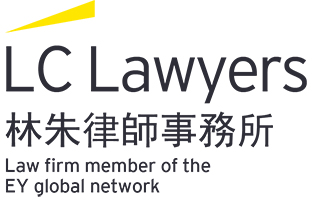In August 2023, Hong Kong’s Securities and Future Commission (SFC) announced it would proceed with amendments to the insider dealing provisions of the Securities and Futures Ordinance.
The ordinance is the main piece of written law in Hong Kong regulating the city’s securities and futures markets, as well as activities connected with financial products. Since its enactment in 2002, the SFC has regularly reviewed it and proposed amendments.
In the Consultation Paper on Proposed Amendments to Enforcement-related Provisions of the Securities and Futures Ordinance, issued in June 2022, the SFC made three proposals for amendments. These have now met with differing outcomes, as detailed below.
Adopted: Insider dealing

Managing Partner
LC Lawyers
Insider dealing of “listed securities” is prohibited under section 270 (civil liability) and section 291 (criminal liability) of the ordinance.
The term “listed securities” covers only securities listed on the Hong Kong stock market, securities dually listed in Hong Kong and other jurisdictions, and their derivatives.
The regime does not apply to insider dealing taking place in Hong Kong that involves overseas-listed securities or their derivatives. This limited coverage might damage the reputation of Hong Kong’s financial markets and its status as an international financial centre.
The ordinance also does not expressly apply to insider dealing perpetrated outside Hong Kong for Hong Kong-listed securities or their derivatives. But about 61% of the insider dealing cases handled by the SFC between 2017 and 2021 concerned insider dealing perpetrated outside Hong Kong for Hong Kong-listed securities or their derivatives.
To close the loophole, the SFC proposed to expand the definition to include:
- Any acts of insider dealing involving overseas-listed securities or their derivatives if any one or more of such acts occur in Hong Kong; and
- Any acts of insider dealing involving Hong Kong-listed securities or their derivatives, regardless of where they occur.
Respondents to the consultation generally welcomed the proposal. Accordingly, the SFC decided to proceed with the amendment. The actual wording of the amendment will be available for review during the forthcoming legislative process.
On hold: Regulated person

Associate
LC Lawyers
The SFC put on hold a proposed expansion of its power towards regulated persons.
If a regulated person (that is, an individual or institution carrying out SFC regulated activities) is guilty of misconduct, or the SFC is of the opinion that they are not a fit and proper person to remain a regulated person, the SFC may take disciplinary actions including suspension or revocation of that person’s licence or registration, imposing fines and issuing reprimands.
Section 213 of the ordinance empowers the SFC to apply for court orders against regulated persons in the case of contravention of ordinance provisions or licensing/registration conditions. The SFC’s codes and guidelines do not carry legal force. This means that any breach of those codes and guidelines by a regulated person, however serious, does not give the SFC a right to apply for a court order against the person.
The SFC proposed to amend section 213 of the ordinance so that it could apply for a court order after exercising its powers against the regulated person. This proposal aroused serious public concerns.
Some respondents commented that it would give rise to “legal” remedies based on breaches of “non-statutory” SFC codes and guidelines. Some raised the concern that all forms of SFC disciplinary actions might potentially trigger section 213 court order applications, which might be disproportionate or unfair to regulated persons.
Having considered the public submissions, the SFC decided to put this proposal on hold. It will instead consider a full range of other options to achieve the policy objective, including strengthening its disciplinary regime.
On hold: Advertising
The SFC put a hold on the proposed amendment to the advertisement authorisation exemption for financial products.
At present, section 103 of the ordinance prohibits the issue of advertisements of financial products or collective investment schemes unless the issue has been authorised by the SFC, or any exemption applies (a common one is the professional investor’s exemption).
Generally, if an advertisement of investment products is issued to the general public but the products are sold to only professional investors, the advertisement is still exempted from SFC authorisation. However, the SFC worried that retail investors may still be exposed to unauthorised offers to invest in risky or complex products that are only suitable for professional investors.
For this reason, it sought to amend section 103 of the ordinance so that advertisements (if not authorised by the SFC beforehand) of products to be sold to professional investors could only be issued to professional investors who have been identified as such in advance through know-your-client procedures – that is, such advertisements could not be issued to the general public at all.
A majority of respondents raised concerns over this proposal. Some doubted whether such an amendment was necessary when retail investors are not exposed to risks of investment products that cannot be sold to them. Many respondents highlighted that the amendment would bring about increased operational difficulties and impact intermediaries’ marketing processes.
Before sending an advertisement, the intermediary would have to conduct pre-checks to ensure all target recipients were professional investors. This might limit the recipient groups for smaller intermediaries compared to large financial institutions, which already have sizeable pre-existing professional investor bases to market their new products.
The SFC eventually decided not to proceed with this proposal but reminded that, to invoke the professional investor exemption, the intermediary must demonstrate a clear intention to sell the products only to professional investors.
Rossana Chu is the managing partner and Jacky Chan is an associate at LC Lawyers

and the Hong Kong law firm member of the EY global network,
in collaboration with other law firm members.
Suite 3106, 31/F One Taikoo Place
979 King’s Road, Quarry Bay, Hong Kong
Tel: +852 2629 3200
Fax: +852 2956 1980
E-mail: rossana.chu@eylaw.com.hk
jacky-ch.chan@eylaw.com.hk
www.eylaw.com.hk





















